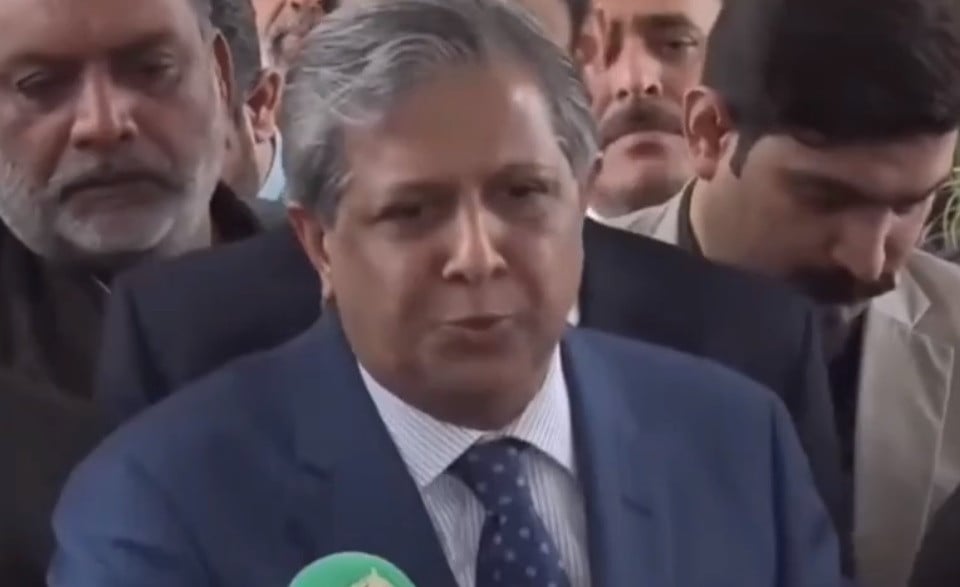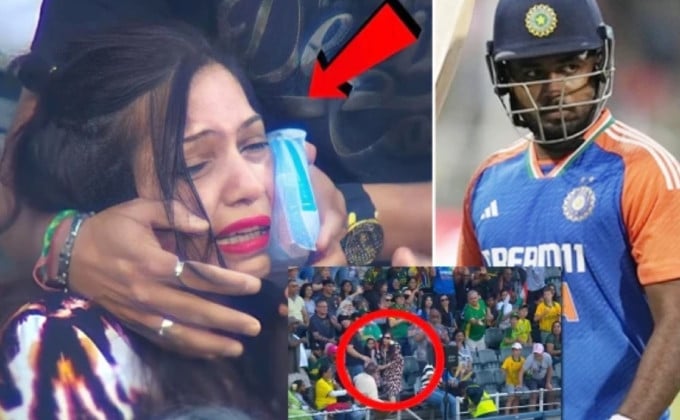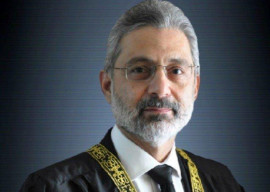
Federal Law Minister Azam Nazeer Tarar on Wednesday claimed that the Supreme Court ruling in the Punjab and Khyber Pakhtunkhwa elections delay petition was “rejected” by a majority 4-3 split.
Talking to the media, the minister maintained that there was no need to review the decision of the suo motu case as it was a “clear decision” that did not require an explanation.
Azam said the government’s position was that the petition had been rejected by 4-3, adding that no further comments were needed on the matter.
“It was essentially a seven-member bench and two judges [Justice Ijazul Ahsan and Justice Sayyed Mazahar Ali Akbar] had voluntarily recused themselves [from the case],” the minister claimed.
“We are saying on record that no one is running away from elections,” he added.
The minister criticised President Dr Arif Alvi for unilaterally setting April 9 as the elections date for Punjab and K-P.
Azam claimed that the president had “broken the law” as he decided to impose the order and then withdraw it.
The comments by the law minister came as the apex court ordered that elections in Punjab and K-P should be held in the next 90 days.
However, the verdict was split 3-2 with Justice Shah and Justice Mandokhail dissenting with the majority.
CJP Bandial, Justice Munib and Justice Mazhar supported the ruling.
The dissenting note maintained that the suo motu was not maintainable.
The CJP had initially formed a nine-member bench to hear the suo motu case comprising himself, Justice Ahsan, Justice Syed Mansoor Ali Shah, Justice Munib Akhtar, Justice Yahya Afridi, Justice Naqvi, Justice Jamal Khan Mandokhail, Justice Muhammad Ali Mazhar, and Justice Athar Minallah.
However, a new five-judge larger bench, comprising the CJP, Justice Shah, Justice Munib, Justice Mandokhail and Justice Mazhar, was later formed.
The development came as Justice Ahsan and Justice Naqvi recused themselves from hearing the case as questions were raised on their presence on the bench.
However, the minister was referring to two more judges, Justice Minallah and Justice Afridi, who had 'disassociated’ themselves from the proceedings as they expressed their opinion on the maintainability of the petitions on the matter.
Justice Minallah, who did not recuse himself, in his note, urged for the formation of the full court to hear the matter.
He added that questions regarding the constitutional legality of the dissolution of the provincial assemblies of Punjab and Khyber Pakhtunkhwa could not be ignored.
Justice Afridi, who too did not recuse himself, noted that it would not be judicially appropriate to exercise the power under Article 184(3) to make an order given that the matters raised in the petitions before the court were also pending adjudication at the Lahore and Peshawar high courts.

1728297472-0/Fousey-(1)1728297472-0-405x300.webp)

1730806672-0/diddy-(37)1730806672-0-165x106.webp)
1731748155-0/BeFunky-collage-(8)1731748155-0-165x106.webp)

1731750654-0/Untitled-design-(16)1731750654-0-270x192.webp)
1731746071-0/Untitled-design-(11)1731746071-0-270x192.webp)
1731749026-0/Copy-of-Untitled-(3)1731749026-0-270x192.webp)

1731748566-1/Untitled-design-(12)1731748566-1-270x192.webp)










COMMENTS (11)
Comments are moderated and generally will be posted if they are on-topic and not abusive.
For more information, please see our Comments FAQ